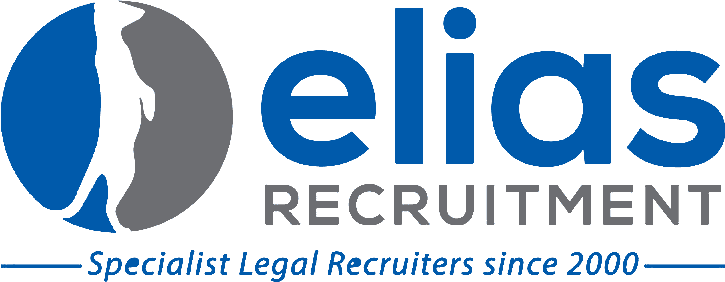
Is it time to progress your career as a Lawyer? Challenge yourself with this checklist.
Is it time to progress your career as a Lawyer? Challenge yourself with this checklist. Before you take the leap and start looking for your next legal job, take a moment to ask yourself the following questions: Am I being challenged in my current role, in my current company? Am I still learning new things? Do I feel respected and appreciated? Am I developing new skills that will enhance my value? Can I see a future career path? Do I get up each Monday excited about going to work or not? Examining the reality of your current role and objectively determining whether it’s the role itself that needs to change or simply the employer can often be the most important first step. Only you know when it’s time to move on. But chances are you’ve at least thought about what the next move might be. There are clear warning signs that it might be time to move on. 1. Staying Doesn’t Make Financial Sense It probably seems risky, but changing jobs can often mean an increase in income or other non-financial benefits. New employers may offer an incentive to move across, and some firms are now offering “70 cents in the dollar on billings” and cross-referral/client introduction fees (often 10% of collected fees). Consider the other benefits you may currently be missing out on: better hours, working closer to home, or flexibility like working from home one day a week. You may find you even have time to take that holiday that never seems to come around. Moreover, staying in a role that doesn’t meet your financial expectations can lead to dissatisfaction and burnout. Regularly assess your market value by networking with recruiters and peers in your field. The recent APLMA Salary survey ( Free for ALPMA member or purchase the full survey here) can provide insights into current salary and employment trends in the Legal Industry and help you benchmark your compensation. Remember, it’s not just about the base salary; look at the total compensation package, including bonuses, benefits, and work-life balance. 2. You’re Risking Guilt by Association No matter how many hours you put in, if you’re not working for the right people, that is energy wasted. Some firms are known for excellence in one area and not others. Ask yourself: how positive is our firm’s reputation in my practice area? Who are we being compared to? Are we being held back or even missing out on work because of the way the firm is perceived? Maybe moving on is a better bet for your reputation. Being associated with a firm that has a tarnished reputation can have long-term career implications. Clients and peers often judge you by the company you keep. If your firm is embroiled in scandals or known for unethical practices, it might be time to distance yourself. Look for firms with a strong ethical foundation and a positive market reputation. A good reputation not only attracts better clients but also opens doors to prestigious career opportunities. 3. Politics Is a Tricky Game Managing demanding clients is one thing. Managing internal conflict is another level of stress altogether. Sometimes firm management just won’t be on your side. Perhaps they are excluding you from managing bigger clients because of some perceived conflict. Did you back the wrong person at the last partner’s meeting? Politicking is part and parcel of law firm life, but if it is taking up too much headspace, it may be time to outgrow the petty game playing. Internal politics can be toxic and detrimental to your mental health and career progression. If you find yourself constantly navigating office politics rather than focusing on your professional growth, it might be a sign to move on. Seek environments where meritocracy prevails and where you are recognized for your contributions and not your alliances. Transparent and supportive leadership can significantly enhance job satisfaction and career development. 4. Your Firm Is Choked by Bureaucracy Too much paperwork and too many meetings might eat into your practice. You would be better off developing business and nurturing client relationships rather than attending endless irrelevant meetings that go nowhere. Overcomplicated workplaces can be very difficult to change. So ask yourself, do you have time to wait around while these knots are being untangled? Or do you have better things to be doing? Bureaucracy can stifle creativity and efficiency. If you spend more time navigating internal processes than serving clients or developing your skills, it might be time to consider a change. Look for firms that value streamlined processes and efficiency. Modern legal practices leverage technology to minimize administrative burdens, allowing lawyers to focus on high-value tasks. Adopting a proactive approach to seeking out such environments can lead to a more fulfilling and productive career. 5. There’s Been a Change in Direction When you started your current role it may have been a perfect match. But things change. If your firm decides to take things in a new direction, your areas of focus may simply not fit anymore. Perhaps they have brought in an outsider above you or merged with a firm with an incompatible culture. Adapting to organizational changes can be challenging, especially if the new direction doesn’t align with your career goals. When a firm shifts its strategic focus, it can create misalignment with your professional objectives. This misalignment can hinder your growth and job satisfaction. It’s essential to stay attuned to industry trends and be prepared to pivot when necessary. Evaluate whether the new direction aligns with your long-term goals and values. If not, it might be time to explore other opportunities that better suit your career aspirations. 6. There’s a Values Mismatch This is tough because values underpin every decision, big and small. Even if your situation looks fantastic on paper, a fundamental mismatch in values or personalities will wear you down over time. Values don’t have to be spelled out in a strategic document. You’ll know what your firm’s priorities are, and




